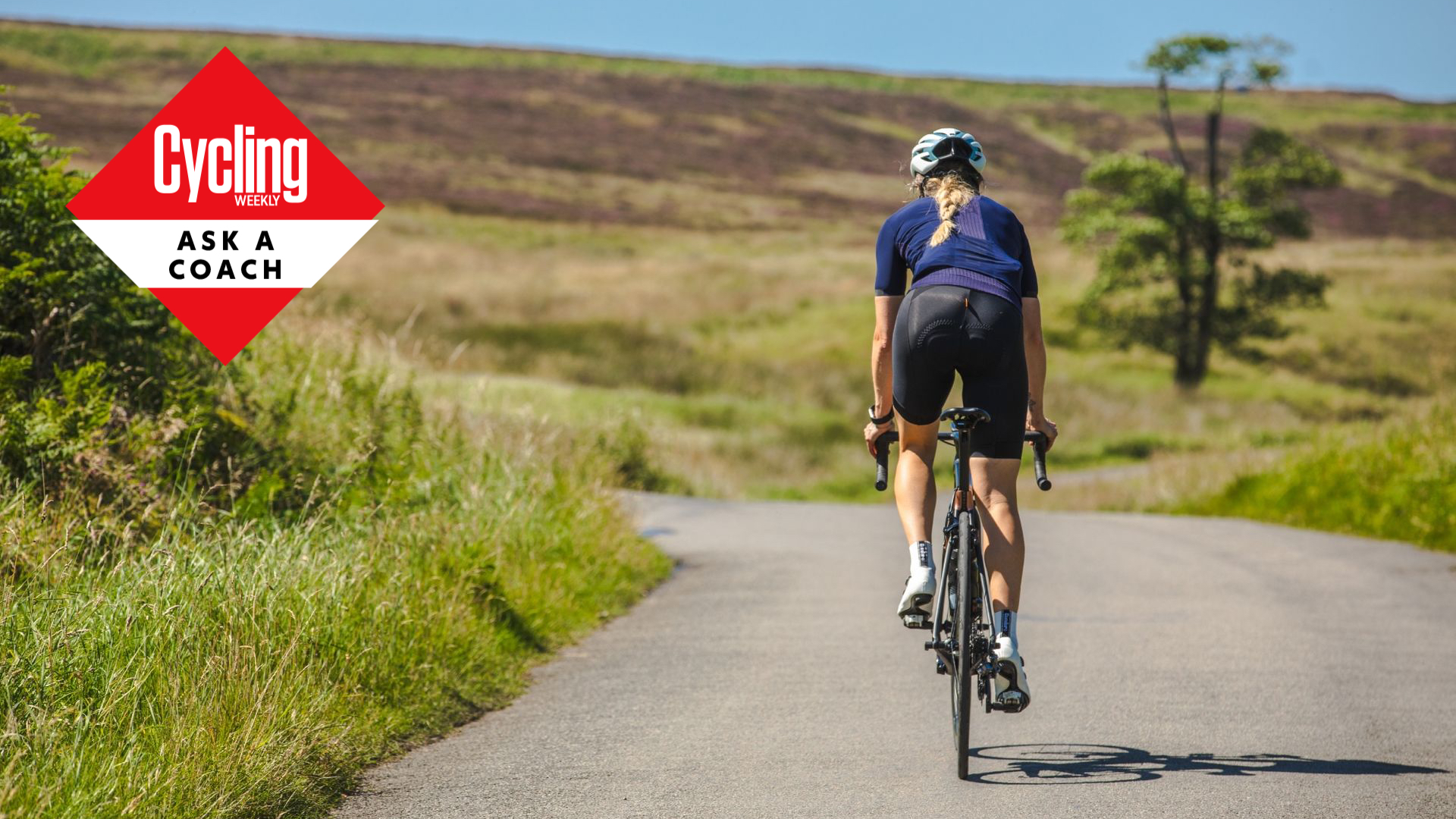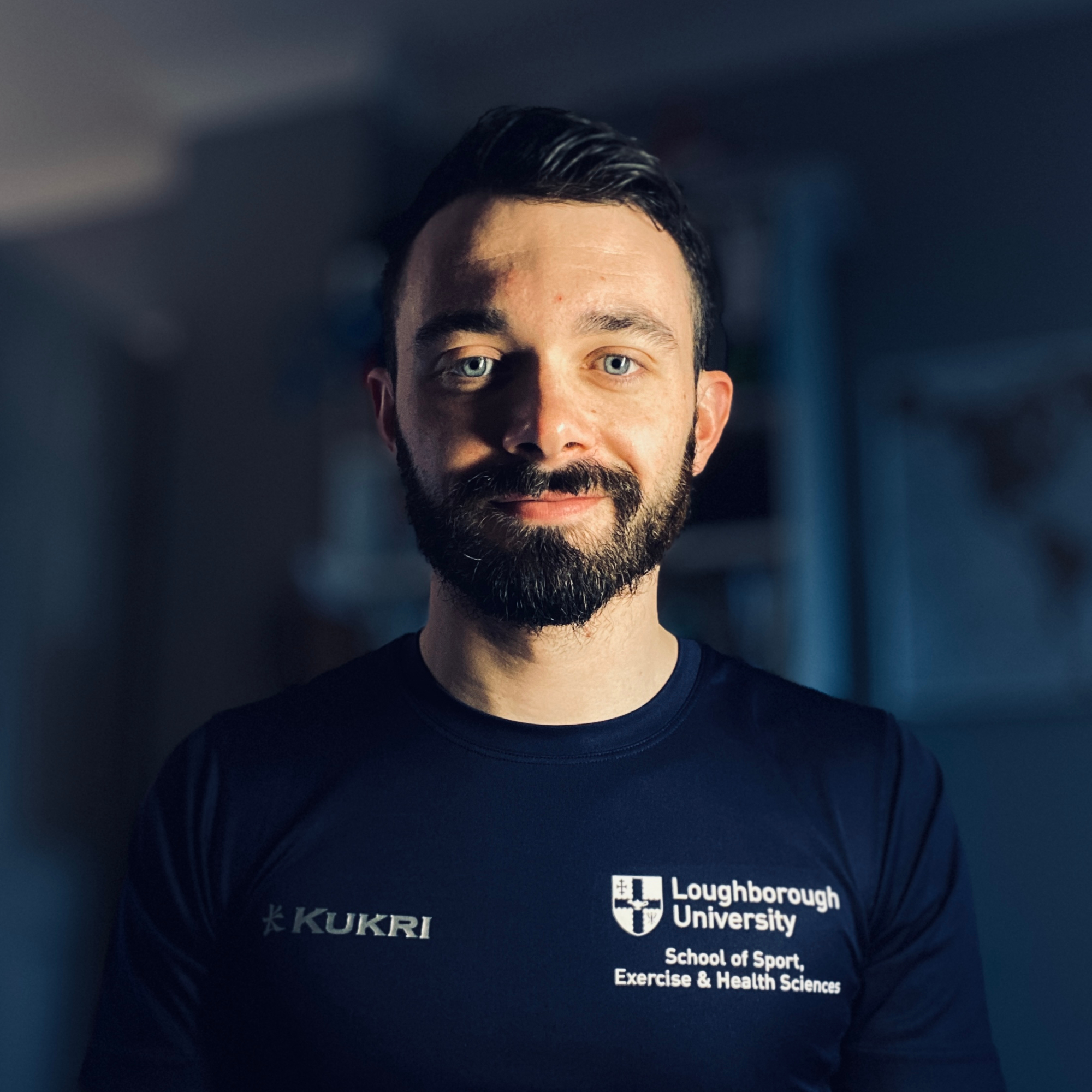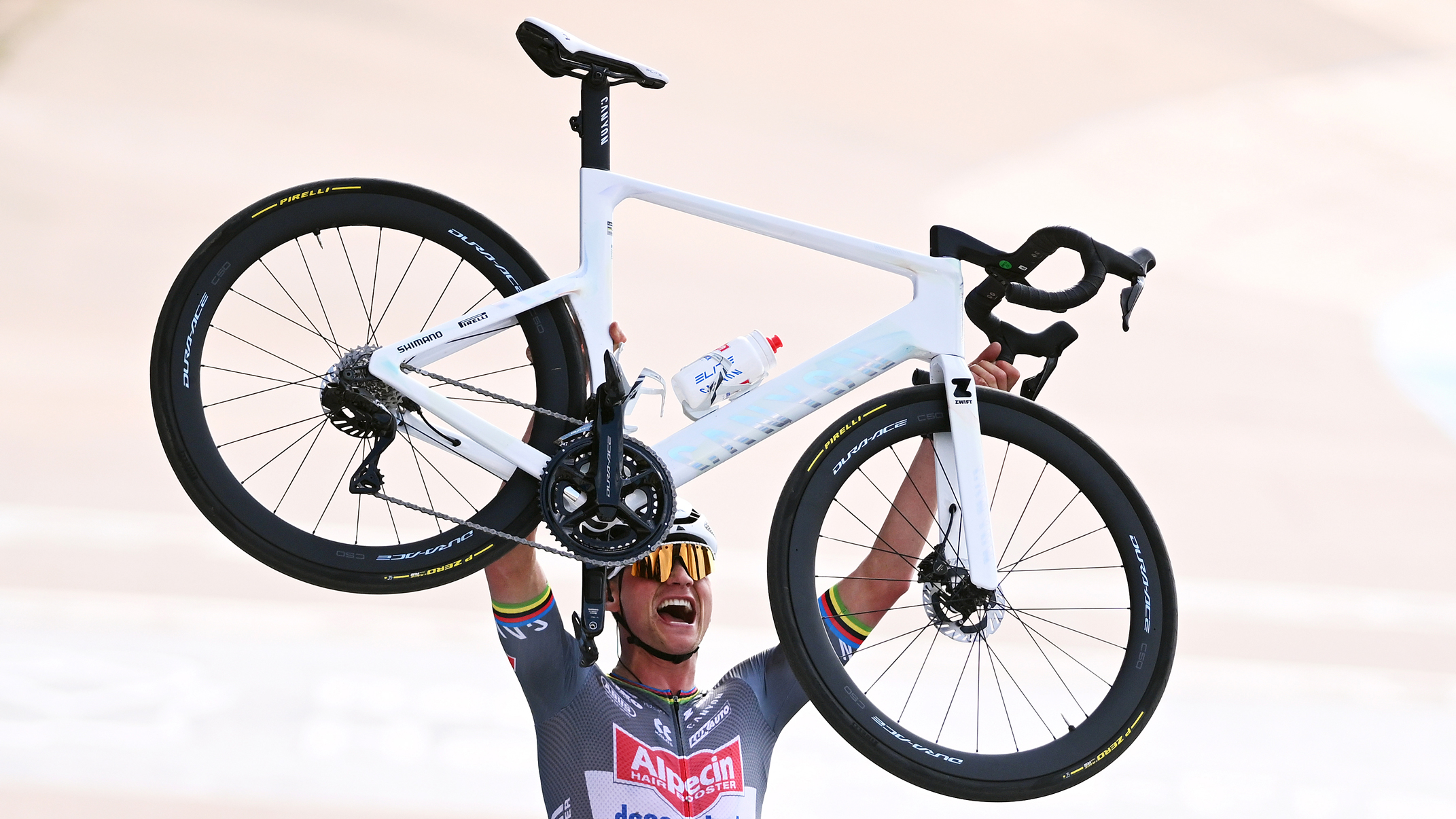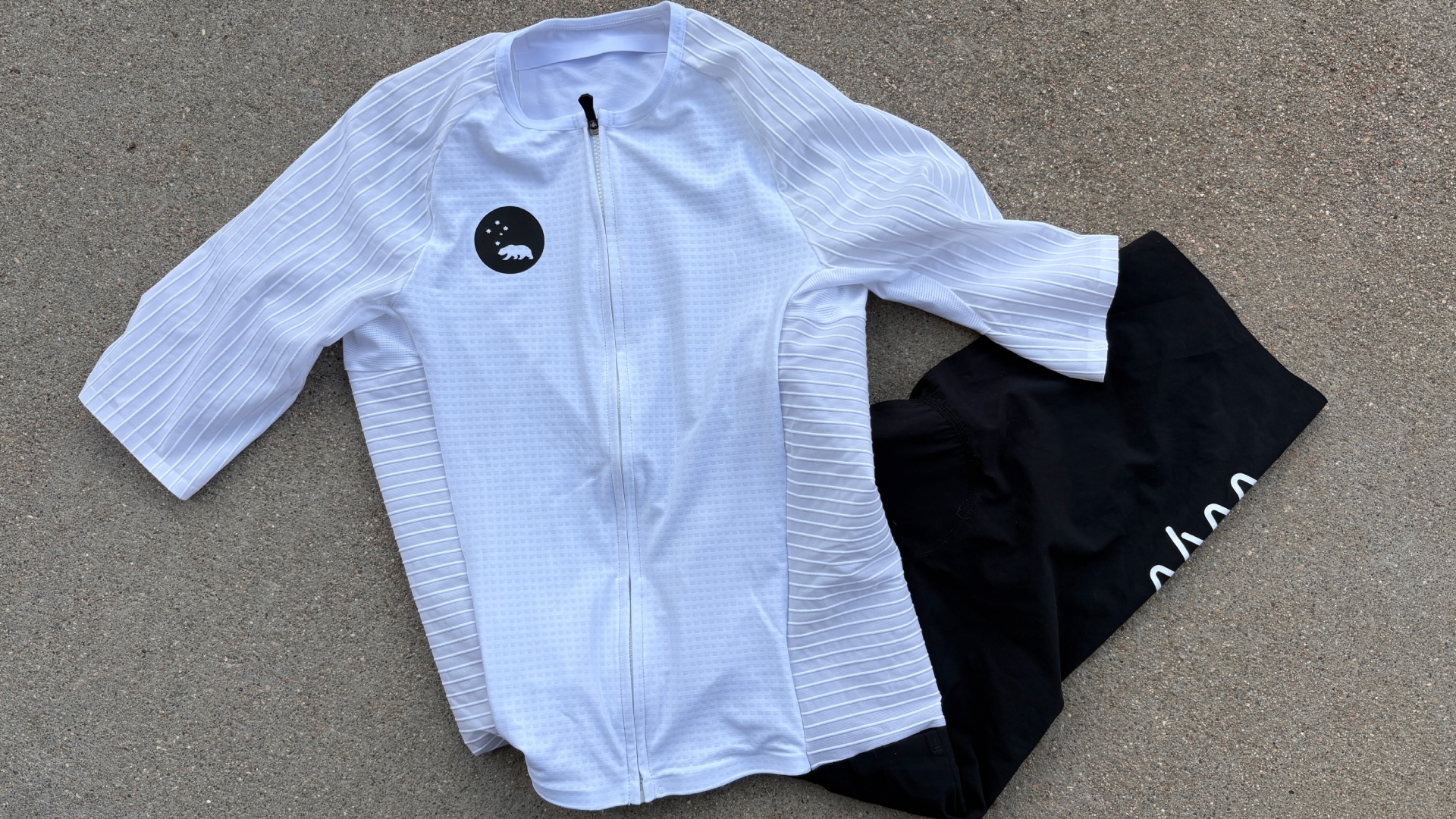Ask a coach: 'I don't have time for endurance rides at the weekend – how can I build up to a 100-mile event?'
With a focus on quality rather than quantity, four hours of training during the week is enough to make riding a century an enjoyable experience rather than a feat of endurance


A 100-mile event or ‘century ride’ is frequently a goal for a beginning cyclist. It's not only a rite of passage but it also rightly comes with a great sense of achievement. Even on 'easy' terrain, riding 100 miles is extremely tough and requires not only physical but also mental strength. I still remember my first 100-mile ride which, out of necessity, did have multiple café stops and when I got in I was very much ready for my bed.
But – do you need to actually ride 100 miles in advance of taking on your event or challenge? Of course it can help, but this is more because it builds the confidence in yourself that you can do it. If you don’t have an unlimited number of hours on the bike to spare – as many of us don’t – what then? I recall, my longest ride was around 3-4 hours prior to my first 12-hour mountain bike event.
So, how can I complete a 100-mile event with minimal training time?
Even if we don’t have much time for a long endurance ride, let’s say we do have time for 2 x 90 minute sessions on the bike and then 1 x 60 minutes. Let's take a look at how best to optimise four hours of training per week.

Alex is a physiologist and performance coach who is studying for a PhD in critical power and W’ at Loughborough University. He competed for 10 years on the bike, including for GB in both cyclo-cross and mountain bike events, and as a coach has worked with cyclists of all levels including ultra-endurance world champions and Tour de France Femmes participants.
With only four hours of training available, the focus is really going to be on quality, with the aim of getting the most out of each session to get you as prepared as we can for your event. If you are new to the sport this can be a great time to start with a functional threshold power (FTP) test or Critical Power test. This helps you to set your training zones ready for your 100-mile event preparation. If you don’t have a power meter, you can use heart rate as another guide.
Despite the fact you will be spending a lot of time below your FTP/CP, just ‘riding’ for those three sessions will unlikely make the same improvements to a more focused and structured approach.
Of course, if we had as much time as we wanted, we would certainly spend a lot of time in your lower training zones building up enough volume. But as that isn’t an option, let's focus on what we do have and make the most out of it.
Get The Leadout Newsletter
The latest race content, interviews, features, reviews and expert buying guides, direct to your inbox!
The training sessions you should include
Get in the zone
Training zones refer to different levels of training intensity, zone 2 being very easy, and zone 5 very hard. Zones can be set using rate of perceived exertion (RPE), heart rate, or power - read more here.
Tempo efforts
Because we are short on time, we will increase the intensity of our longest ride, which is 90 minutes. This session should predominantly be done in zone 3 (see box). You can start with 3 x 20 minutes, progress to 2 x 30 then 2 x 40 and finally go for almost the full 90 minutes. Obviously, use the first 5-10 minutes to warm up and settle into it. Recovery time will only be 5-10 minutes on these as the intensity is zone 3.
Threshold sessions
This can be completed in either your 60 or 90-minute sessions. Threshold is equivalent to zone 4.
After your warm-up complete 3 x 8 minutes at 97-103% of your CP/FTP and you can progress these by adding on duration to these efforts: 3 x 10, 3 x 12, etc.
I’m a big fan of prescribing under-over style threshold sessions, as they can easily add progression with lots of variations to keep things interesting. Start with 3 x 12-minute blocks with 1 minute around 102-108% of FTP/CP then 3 minutes at 85-95% of your FTP/CP with at least 5 minutes recovery in between blocks. If it is your first time doing these, you can do 30 seconds over and a 3:30 under.
More intense efforts
Finally, add more intensity. Here are two variations: start with 4 x 3 minutes at your 5-6 minutes maximal power, with 3 minutes' recovery. The first time you do this is often a shock to the system. Once you get familiar then start to increase the number of repetitions, working your way up to 6. The other involves some shorter sharper efforts that are all maximal: 2 x 60s, 3 x 30s and 4 x 20s. Have around 3 minutes of recovery between each of these efforts, adding more if you need it.
These are some sessions that you should use in the lead-up to a 100-mile event if you are limited on time. As mentioned in an ideal world we would include some longer endurance riders. But with time being scarce the focus really is on that quality.
On the Big Day
One thing that can’t be neglected, and one that will honestly make your time in the saddle far more enjoyable, will be fuelling for your 100-mile ride. There will be nothing more soul-destroying than getting to that 50-70 mile mark and having the feeling of being empty and hitting the ‘wall’ – also known as a good old-fashioned bonk.
Think about your pacing. Don’t set off too hard, as you are more likely to hit that wall. Don’t be tearing it up the climbs as you will soon pay the price, and no one enjoys the feeling which can only be described as ‘going backwards’. Keep a steady and easy pace across the 100 miles and it will make it much more enjoyable.
With all this being said, and enjoying the event being the main goal, don’t get inside your own head. Take your time, be confident that your training has prepared you and fuel the entire way round.

Thank you for reading 20 articles this month* Join now for unlimited access
Enjoy your first month for just £1 / $1 / €1
*Read 5 free articles per month without a subscription

Join now for unlimited access
Try first month for just £1 / $1 / €1
Alex is a Physiologist, Performance Coach, who also lectures occasionally at Loughborough
University where he is completing his PhD in Critical power and W'.
After competing for over 10 years on the bike, where he has competed for GB in both
cyclocross and mountain bike events, he now spends his spare time in the mountains as an
aspiring guide. Alex has worked with cyclists of all levels over the last 9 years, from ultra-
endurance world champions to the Women’s TDF. Supporting his PhD he manages The
Performance Project, consulting with and coaching athletes. Finally, he is also a proud
sponsor of southern based LAKA X Pedal Mafia Race Team.
-
 Save £42 on the same tyres that Mathieu Van de Poel won Paris-Roubaix on, this Easter weekend
Save £42 on the same tyres that Mathieu Van de Poel won Paris-Roubaix on, this Easter weekendDeals Its rare that Pirelli P-Zero Race TLR RS can be found on sale, and certainly not with a whopping 25% discount, grab a pair this weekend before they go...
By Matt Ischt-Barnard
-
 "Like a second skin” - the WYN Republic CdA triathlon suit reviewed
"Like a second skin” - the WYN Republic CdA triathlon suit reviewed$700 is a substantial investment in a Tri Suit, and it is, but you’ll definitely feel fast in it
By Kristin Jenny